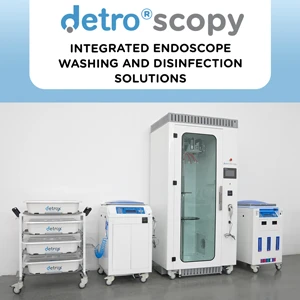Hygiene in Laboratories: Contamination Prevention Methods
Laboratories are sensitive environments where scientific research and analyses are performed. In these environments, hygiene is of great importance for the accuracy of the test results and the health of the employees. Contamination, ie the occurrence of unwanted contamination, may affect the results of the experiment and may cause health problems. For this reason, hygiene rules must be strictly followed in laboratories.
Sources and Types of Contamination
Contamination in laboratories can arise from a variety of sources. These include;
- Air: Dust particles, microorganisms and chemicals in the air are one of the most common causes of contamination.
- Water: Contamination from tap water, pure water systems or other water sources may affect the experimental results.
- Equipment Failure to adequately clean or sterilise the equipment used can lead to contamination.
- Employees Contamination may occur through workers’ clothing, hands or other body debris.
- Samples Contamination may occur due to improper storage or transport of samples to be analysed.
The types of contamination are;
- Biological contamination: Contamination by microorganisms (bacteria, viruses, fungi, etc.).
- Chemical contamination: Unintended mixing of chemical substances.
- Physical contamination: Mixing of physical particles such as dust, hair, glass particles.
Precautions for Hygiene in Laboratories
- Personal Protective Equipment (PPE): It is mandatory to use PPE such as gloves, goggles, masks and aprons while working in the laboratory.
- Cleaning and Disinfection: Laboratory surfaces, equipment and tools must be cleaned and disinfected regularly.
- Sterilisation: Reusable equipment must be sterilised.
- Air Quality: Air filtration systems should be used in laboratories and regularly maintained.
- Waste Management: Wastes should be separated according to their types and disposed of safely.
- Training: Laboratory staff should be provided with regular hygiene training.
- Standard Procedures: Standard procedures must be determined for all transactions and these procedures must be followed.
Importance of Hygiene in Laboratories
Ensuring hygiene in laboratories is important in many respects:
- Accuracy of test results: Contamination can affect the experimental results and lead to incorrect conclusions.
- Employee health: Contamination can cause workers to suffer from various health problems.
- Environmental health: Improper waste management can damage the environment.
- Product safety: The quality and safety of manufactured products depend on laboratory hygiene
Frequently Asked Questions
- What are the most common types of contamination in laboratories? The most common types of contamination include biological contamination (microorganisms) and chemical contamination.
- Which diseases are laboratory workers at risk of contracting? Laboratory workers are at risk of contracting various infectious diseases depending on the materials they work with. These include diseases such as hepatitis, HIV and tuberculosis.
- What are the disinfectants used in laboratories? Various disinfectants such as alcohol, quaternary ammonium compounds, hydrogen peroxide are used in laboratories. The choice of disinfectant is determined according to the surface to be contaminated and the type of microorganism.
- Why are biosafety cabinets used in laboratories? Biosafety cabinets are used to prevent the spread of airborne particles in environments working with infectious agents.
- How is laboratory waste disposed of? Laboratory wastes are separated according to their types and disposed of in accordance with the relevant regulations. Biological wastes, chemical wastes and solid wastes are disposed of by different methods.
Hygiene in laboratories is an indispensable element for the reliability of scientific studies and the health of employees. By taking the above-mentioned precautions, the risk of contamination in laboratories can be minimised and a healthy working environment can be created.
Detro Healthcare offers hygiene solutions for your laboratories. You can contact us for more information about our products and services.






















